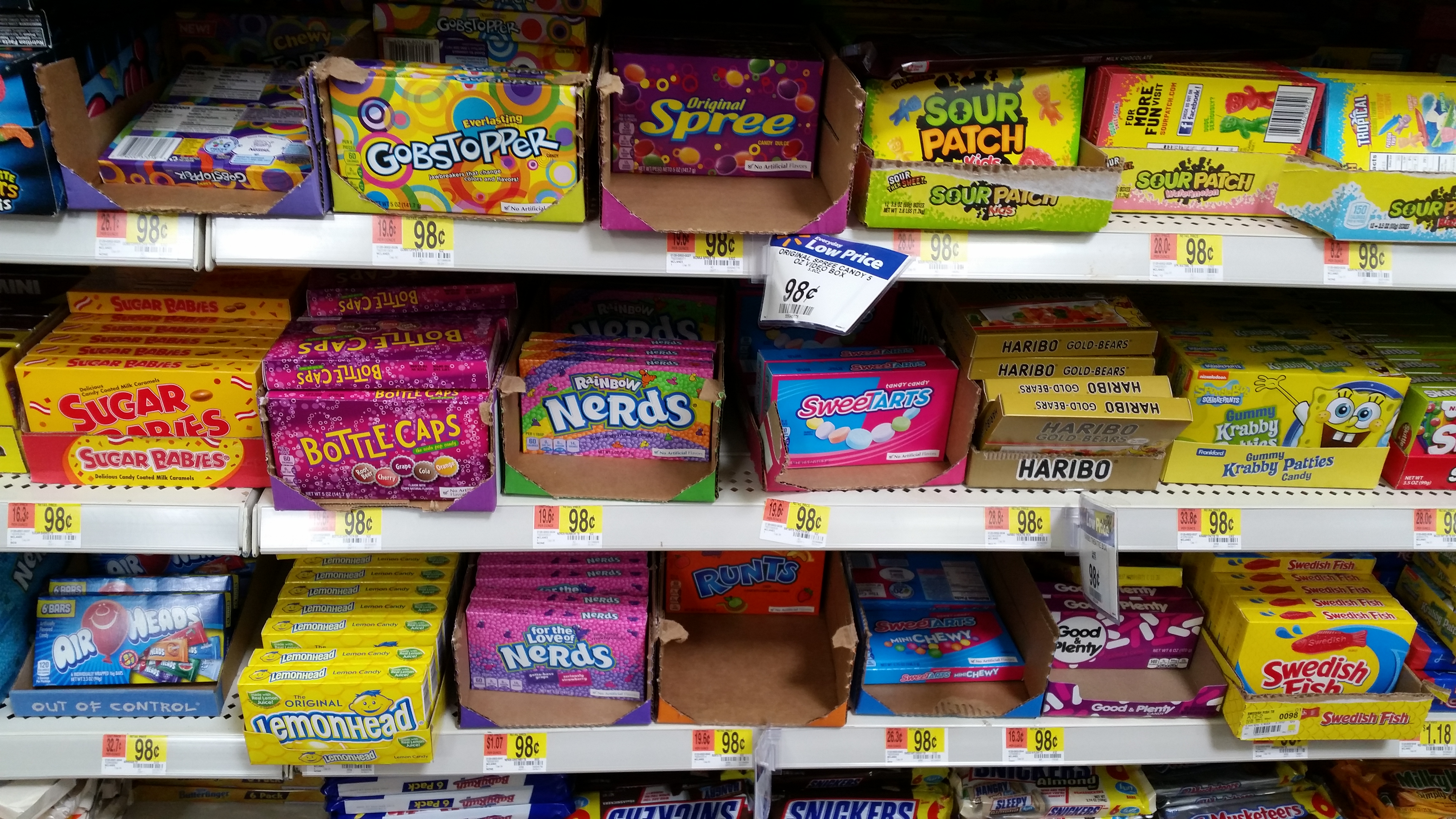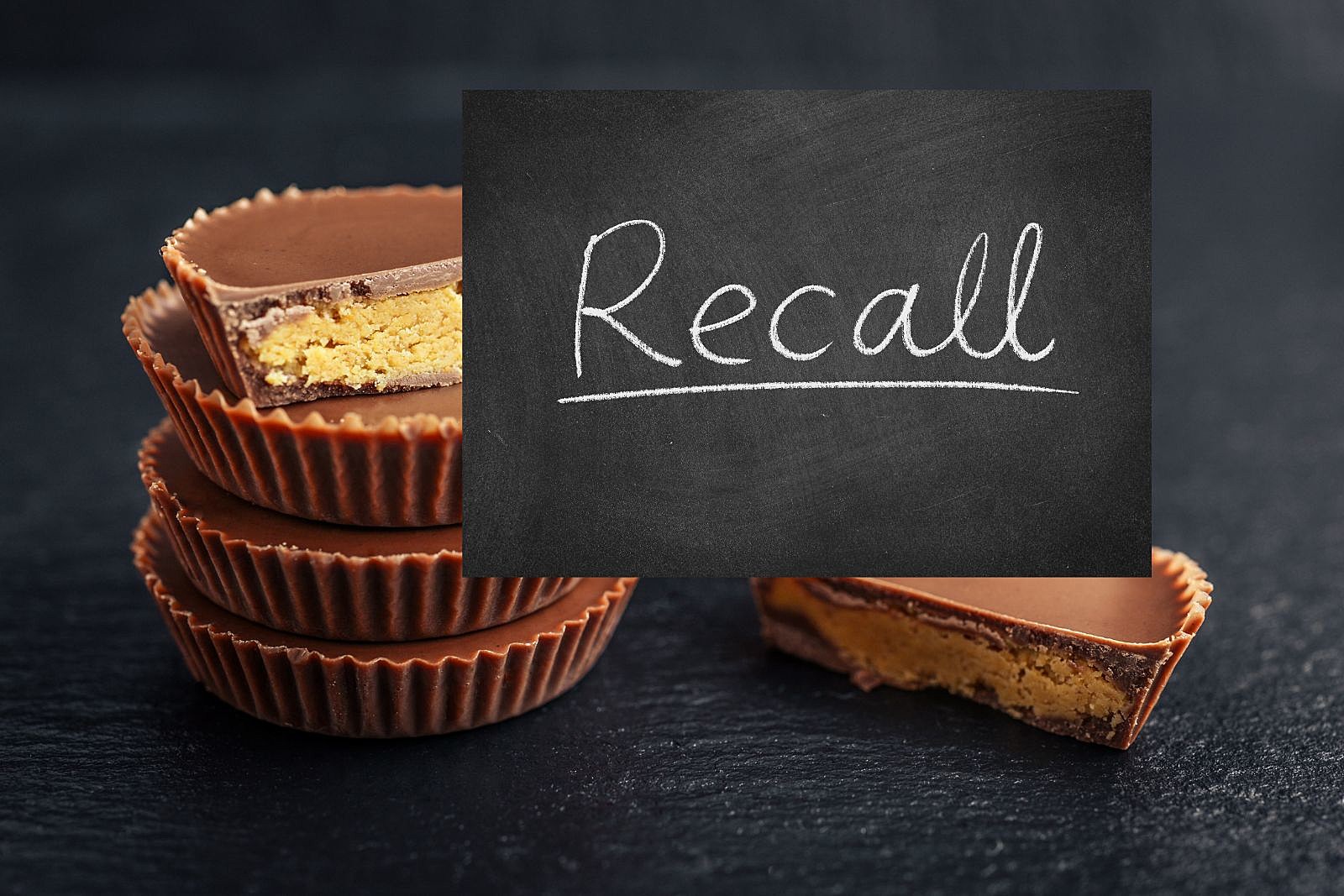Walmart’s Recall History: Walmart Recalls Candy

Walmart, as a global retail giant, has a history of issuing product recalls, including candy, to ensure consumer safety. These recalls are often initiated due to potential health risks, manufacturing defects, or allergen concerns. This section provides a timeline of significant candy recalls initiated by Walmart in the past five years, explores the reasons behind these recalls, and identifies any patterns or trends in the types of candy recalled.
Candy Recalls Initiated by Walmart in the Past Five Years
The following table presents a timeline of significant candy recalls initiated by Walmart in the past five years, along with the reasons for each recall.
| Date | Candy Product | Reason for Recall |
|---|---|---|
| 2018-03-15 | Kinder Surprise Eggs | Salmonella contamination |
| 2019-07-22 | Gummy Bears | Undeclared peanut allergen |
| 2020-01-10 | Chocolate Bars | Metal fragments found in product |
| 2021-05-05 | Lollipops | Potential choking hazard for young children |
| 2022-09-12 | Hard Candy | Mislabeling of ingredients |
Reasons for Candy Recalls
Candy recalls are initiated for various reasons, including potential health risks, manufacturing defects, and allergen concerns.
- Potential Health Risks: Recalls due to potential health risks are often triggered by the presence of contaminants, such as bacteria or metals, in the candy. These contaminants can cause food poisoning or other health issues.
- Manufacturing Defects: Manufacturing defects, such as broken pieces or sharp edges, can pose a choking hazard or lead to injury. Recalls are issued to prevent these potential risks.
- Allergen Concerns: Undisclosed allergens in candy products can pose a serious health risk to individuals with allergies. Recalls are initiated to protect consumers with allergies and prevent allergic reactions.
Patterns and Trends in Candy Recalls
Analyzing the reasons for candy recalls reveals several patterns and trends. The presence of contaminants and allergens in candy products remains a significant concern, highlighting the importance of robust food safety measures. Additionally, manufacturing defects, particularly those related to choking hazards, are a recurring issue, emphasizing the need for thorough quality control processes.
Impact of Recalls on Consumers

Candy recalls can have a significant impact on consumers, affecting their health, trust in brands, and shopping habits. Understanding the potential risks, consumer responses, and communication strategies employed by companies like Walmart is crucial for informed decision-making.
Potential Health Risks Associated with Consuming Recalled Candy
Recalled candy can pose a variety of health risks to consumers. These risks depend on the specific reason for the recall, but some common concerns include:
- Allergens: Undisclosed allergens, such as peanuts or milk, can trigger severe allergic reactions in susceptible individuals.
- Contamination: Recalls may occur due to contamination with bacteria, such as Salmonella or E. coli, which can cause food poisoning.
- Foreign Objects: Recalls can involve the presence of foreign objects, such as pieces of metal or plastic, that can cause choking or internal injuries.
- Mislabeling: Incorrect labeling of ingredients or nutritional information can mislead consumers, particularly those with dietary restrictions or allergies.
Consumer Response to Walmart’s Candy Recalls
Consumer response to Walmart’s candy recalls has varied, reflecting the seriousness of the issue and the level of trust in the company.
- Public Outcry: Recalls often generate public outcry, especially when they involve potential health risks. Consumers may express concern and anger on social media, news platforms, and through consumer advocacy groups.
- Social Media Discussions: Social media platforms like Twitter and Facebook become hubs for information sharing, discussions, and complaints regarding recalls. Consumers share their experiences, seek advice, and express their frustration.
- Increased Awareness: Recalls can lead to increased consumer awareness about food safety and the importance of checking product labels and recall notices.
Communication of Recall Information to Consumers
Walmart has implemented various strategies to communicate recall information effectively to consumers.
- Website Announcements: Walmart prominently displays recall notices on its website, providing detailed information about the affected products, reasons for the recall, and instructions for consumers.
- Email Notifications: Walmart utilizes email to reach registered customers, providing updates on recalls and informing them about potential risks.
- Social Media Updates: Walmart uses its social media platforms, such as Facebook and Twitter, to disseminate recall information quickly and reach a wider audience.
- In-Store Signage: Walmart places clear and visible signage in stores to inform customers about recalls, highlighting affected products and providing instructions for returns or exchanges.
- Media Outreach: Walmart actively engages with media outlets to publicize recall information, ensuring widespread awareness among consumers.
Walmart’s Recall Process and Response

Walmart, as a global retail giant, has established a comprehensive recall process to ensure the safety of its customers. This process encompasses internal procedures, collaboration with regulatory agencies, and transparent communication strategies.
Walmart’s Internal Procedures for Managing Recalls
Walmart’s recall process is designed to be swift and efficient, prioritizing consumer safety. Key elements of this process include:
- Rapid Identification and Notification: Upon receiving information about a potential product safety issue, Walmart immediately initiates an investigation. If a recall is deemed necessary, Walmart promptly notifies its suppliers and initiates a recall plan.
- Coordination with Suppliers: Walmart works closely with its suppliers to gather information about the affected products, determine the scope of the recall, and implement corrective actions.
- Product Removal: Walmart swiftly removes recalled products from its shelves and distribution centers. The company also utilizes its extensive network of stores to ensure the recall reaches its intended audience.
- Customer Communication: Walmart communicates recall information to customers through various channels, including its website, social media, in-store signage, and customer service representatives.
The Role of Regulatory Agencies in Walmart’s Recall Process
Regulatory agencies like the Food and Drug Administration (FDA) play a crucial role in Walmart’s recall process. The FDA sets safety standards for food products, including candy, and monitors compliance.
- Enforcement and Oversight: The FDA has the authority to enforce recall orders and ensure that companies, including Walmart, comply with safety regulations.
- Information Sharing: The FDA shares information about potential safety risks with Walmart and other retailers, allowing for early detection and response.
- Collaboration: The FDA collaborates with Walmart and other stakeholders to ensure that recalls are conducted effectively and efficiently.
Walmart’s Transparency and Communication Efforts, Walmart recalls candy
Walmart strives to maintain transparency and open communication during recalls. The company provides clear and concise information about the recall, including the product details, the reason for the recall, and the actions consumers should take.
- Public Announcements: Walmart issues public announcements through its website, social media platforms, and press releases, ensuring that consumers are informed about the recall.
- Customer Service: Walmart provides dedicated customer service lines and online resources to answer questions and address concerns related to the recall.
- In-Store Signage: Walmart places prominent signage in its stores to inform customers about the recall and direct them to the appropriate resources.
Walmart recalls candy – Walmart’s recent candy recall highlights the importance of product safety, a concern that resonates across the globe. The conflict between Israel and Iran , for instance, underscores the need for robust safety protocols in all industries. While the candy recall might seem minor in comparison, it reinforces the principle that vigilance is essential in ensuring the well-being of consumers, regardless of the product or the political landscape.
Walmart’s candy recall is a stark reminder that even seemingly innocuous products can pose a risk. This incident highlights the importance of being prepared for any emergency, especially in areas like northeast Ohio , which are prone to various hazards.
While a candy recall might seem trivial, it underscores the need for vigilance and proactive measures to ensure safety, particularly in situations where access to essential supplies could be disrupted. It’s crucial to have a plan in place, just as Walmart is likely doing to rectify the candy issue.
